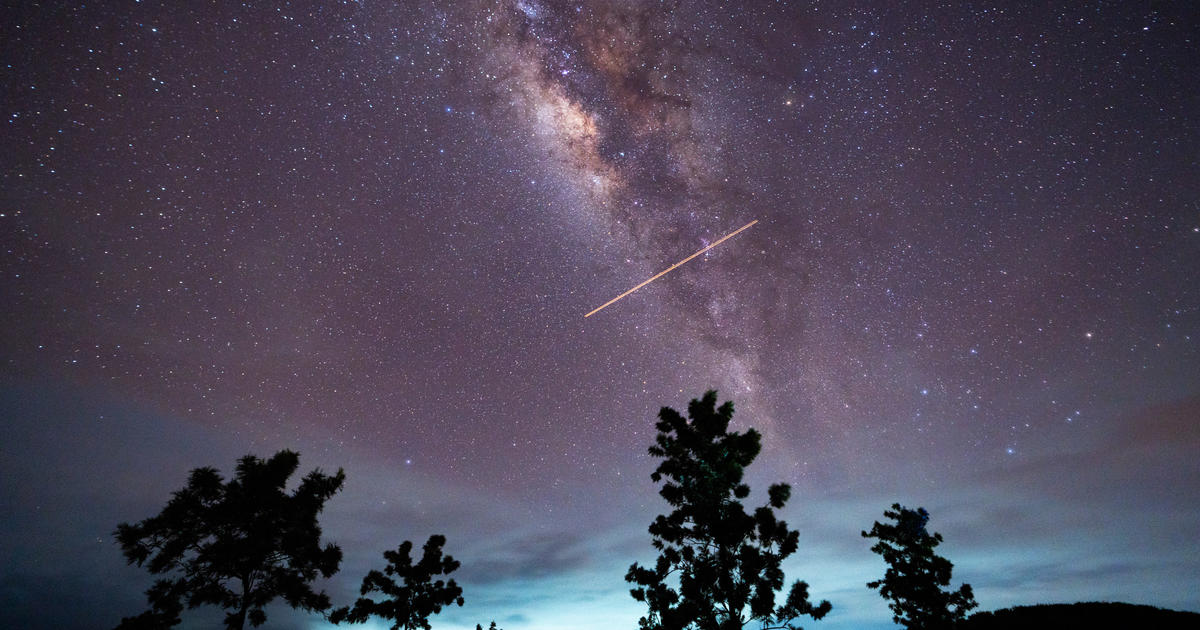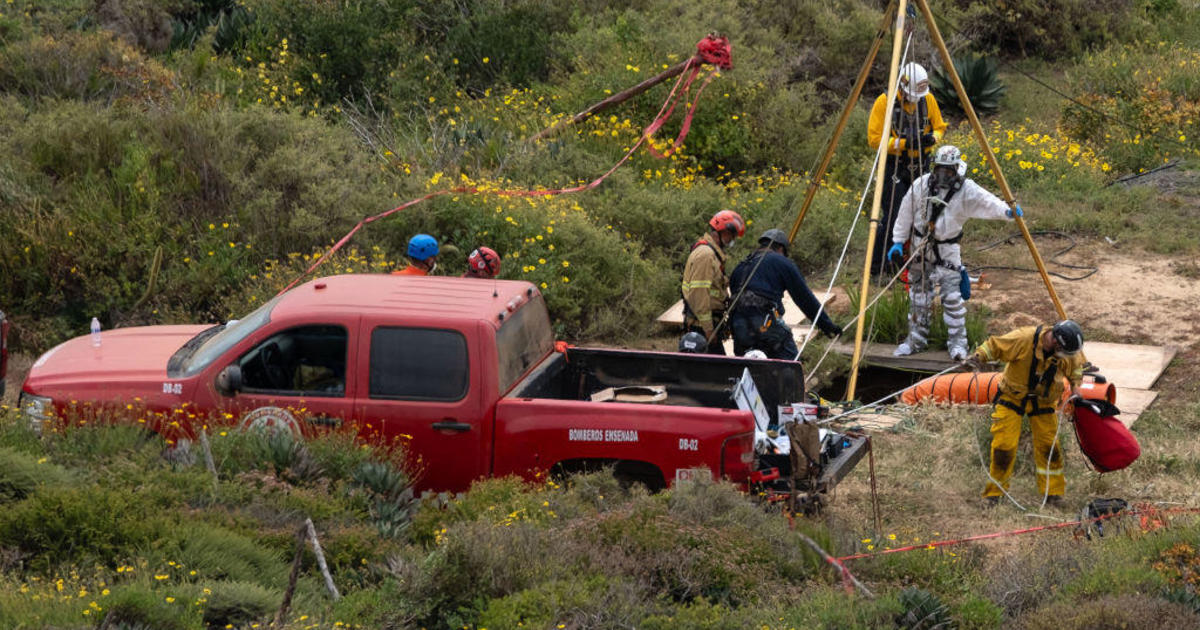Blue whale that washed ashore in northern Calif. has been spotted dozens of times before
BOLINAS, Calif. -- The body of an endangered, 79-foot-long blue whale that washed ashore in Marin County, California, had injuries consistent with being struck by a ship, according to an expert from the Marine Mammal Center in Sausalito, CBS San Francisco reports.
"We found several broken ribs and, when that happens, we also want to look to see if there's evidence of hemorrhage. That means that it happened before death," Dr. Claire Simeone told CBS San Francisco.
The whale was discovered off Agate Beach in Bolinas on Thursday. Scientists from the Marine Mammal Center described it as a subadult female. They collected skin and blubber samples on Friday and performed a necropsy Saturday.
Blue whales are the world's largest animal and they're endangered. Fewer than 10,000 are left in the world. About 2,800 live off the California coast.
Based on fluke markings, this particular whale was first spotted in 1999. It's been seen about a dozen times, mostly near the Santa Barbara Channel.
A large crowd of beachgoers have gathered at the shore to see the whale.
"It looks like the whale was pretty badly injured," said beachgoer Jonathon Goldman. "So, that was just the morbid curiosity of it."
Goldman brought his family to check out the whale but said he'd much rather have seen the animal alive and in the open ocean.
"It's quite shocking, I would say, to see a creature of such beauty and magnificence so damaged and washed up. I guess you don't normally see them on beaches," Goldman said.
The whale's body was mostly intact. Researchers say it's rare to find a carcass in such good condition and that could help them learn more about the species. They hope what they learn from the tests performed will help them prevent future deaths in this critically endangered population.
"This is an endangered species, this is the largest animal on Earth. It's magnificent and sad to see them here on the beach. We want to see them in the wild," Simeone said.



